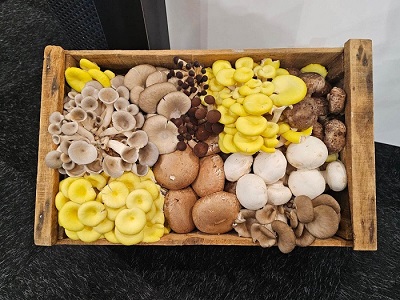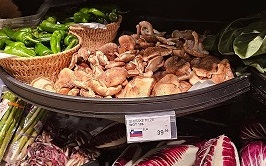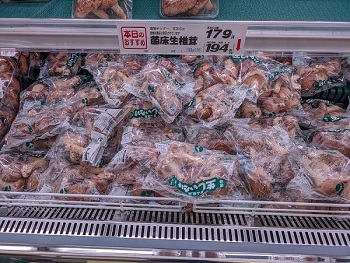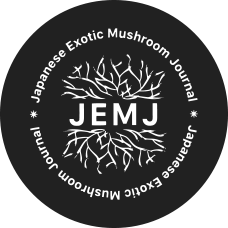Login or Subscribe
You must be logged in to access this content
Subscribe for free access to Japanese Exotic Mushroom Journal and gain insider knowledge on effective cultivation methods for Japanese mushroom species. Elevate your skills with expert tips and innovative technologies to master the art of growing Japanese exotic mushrooms.
◆ Discover exclusive Japanese mushroom cultivation techniques
◆ Learn innovative methods to enhance mushroom quality and yield
◆ Tap into Japan's rich heritage for unique growing insights
◆ Discover exclusive Japanese mushroom cultivation techniques
◆ Learn innovative methods to enhance mushroom quality and yield
◆ Tap into Japan's rich heritage for unique growing insights
Subscribe Now for Free Login
Targeting the right market – the importance of making good planning decisions
Introduction
In my last contribution for this journal I gave a quick overview of the most important topics that a new business must address when beginning an exotic mushroom farm. In this issue I want to expand on my thoughts and jump into the topic: Is there a market?When especially young people try to join the mushroom sector they make the leap based on feelings and impressions. Media, especially social media, often pushes trendy products that are presented as the future of food. Mushrooms are one of those trends. The problem is that this is often based on little to no data or the data itself is not very representative. While we do see, especially with young urban people, a growing interest in plant-based foods, the same is not true for the majority of people in rural areas. For example, in Austria the majority of people are still consuming cheap meat products and mushrooms themselves are at most a special side-dish on such a meat plate. The problem is that most so-called trend foods behave like economic bubbles and soon pop. But what we want is to create a sustainable business in mushrooms and not a start up that will disappear in a few months. So what to do?

A variety box of mushrooms bound for the fresh market. Agaricus bisporus, in both its common white and brown button mushroom forms, is in the center. Elsewhere, grey oyster mushrooms and yellow oyster mushrooms dominate the basket, which also includes a handful of shiitake. While Western Europe in particular is a huge market for mushrooms and consumption is rising, more than 95% of the market share is taken up by button and oyster mushrooms, which are both generally grown on similar straw-based systems.
In Europe the so called “Portobello” was created to have a unique product to fill the summer gap. A portobello mushroom is just an ordinary Agaricus bisporus mushroom, but most consumers think it is from a different, unique species and pay a high premium on it, making it one of the most profitable items for button mushroom farms. This highlights the importance of finding the right market.
Pictured: Portobello mushrooms prepped with cheese, tomato, and pesto sauce to be grilled.- The European market
The problem with Europe is that there is no market in the sense of a united food culture. Food cultures vary radically over the continent. France, Italy, Austria, Hungary or Poland are all very different in their food culture and have different needs. Within each country even, as I noted, there are enormous difference between cities and countryside, and between regions, for which there are cultural and geographic reasons. What does that mean? First of all the majority of (future) mushroom growers will grow their mushrooms for a domestic market and not for export. This means they need to focus like a laser on their own domestic markets rather than waste time studying Europe-wide trends. Second, and this is the most important issue before starting a business, there has to be a main decision: do I want to produce mushrooms in a large scale or in a quantity I can handle with my family alone. Implicit in this question is the matter of what is your long-term personal goal?Second, someone who is considering joining the mushroom sector should think about what kind of mushrooms they want to produce and (more important) for which end user. In practical terms, this means building your business processes around either the fresh market, the industrial food processing market, restaurants, or direct sales. The answer to this question should guide you in investment planning, including the sum of investment, facilities and even location. The most important point is to model the needs of the clients you wish to target (including reaching out to potential clients directly to build relationships and establish what their requirements are) but also to research the market widely so that you can easily find other potential clients and see where there is an unmet need that you are well-positioned to target.This kind of research and logical planning is at the very base of planning a business. Not feelings. Yes, feelings and gut intuition play a role, and yes media trends are an important metric, but this can lead to

- misguided expectations or projecting your ideals as universal when they are not. Let’s be honest, most farmers are not trend-setters and there is nothing wrong with that. Those interested in this business should start by answering the question of whether there is a market for exotic mushrooms with quality, data-backed research. You can do this on your own or with the help of experts but making the time and the investment in this research gives a potential mushroom business a clear “game plan.“ This will save you time and money later on. Such research might even have a straight yes/no answer and be as simple as finding that there is substantial demand for exotic mushrooms in your market because there is a lack of high-quality domestically exotic mushrooms in European right now. Either for industrial food processing or for the fresh market, in principal, there is a growing need for many different varieties of mushrooms. But, importantly, this is not the case for all regional markets and the exotic mushroom sector is not yet well established everywhere within Europe.So to summarize the steps toward a serious business plan, the following questions related to the target market should be answered by each new business before substantial investment is made:1. What are the needs of the market?
2. Is there a lack of supply in the fresh market?
3. Does the food processing industry need exotic mushrooms and if so, which varieties are attracting the most inquiries?4. Can I be a trend-setter or do I want to focus on products with high name recognition?5. What form of production and sales is right one for me?When it comes to searching for the right market, a major question is whether you need to produce exotic mushrooms with an organic certification. In many European countries organic and mushrooms seems to be a prerequisite. But that can also be a fallacy. In industrial food processing this requirement is questionable, and for some regions, even the fresh market will not support the elevated price-point that growing organic requires. Why should, for example, a conventional product that uses processed, non-organic mushrooms and which appeals to non-urban consumers not be a good starting point for a mushroom business? Organic can be a critical sales point, or it can be a barrier, and if it is barrier, is it not better to start by focusing on raising consumption by focusing on production and affordability? And what about the broad variety of meat-based products or even pet food that could be interested in sourcing at least some portion to mushrooms?These questions are very important market research. Don’t underestimate the importance of broad market research, because the entire market is interconnected, and this will influence the way you grow mushrooms. You can be assured that the market for organic products guarantees high prices, for example, but the organic market is directly connected lower demand on the consumer end as a natural result. Yes, of course there is a market for this form of production, but your follow up question in this example should be: is it stable enough to support a sustainable business and is it worth staking my whole business on?The answer to the question of whether or not there is a market is, most of the time, yes, otherwise you probably wouldn’t be asking the question to start with. And when you have answered this question with a yes, then you can start creating a plan. Which micromarket is my target? Where, precisely, do I want to sell? Exactly what volume of mushrooms do I want to produce, and to what quality standards? And it is exactly this topic that I wish to continue to in my next contribution to this series.Johannes Auer was born in Tyrol, Austria, and is project manager and grower at FZ Development Gmbh, Frutura Austria and has worked as a consultant for several other companies. Johannes has worked since in the mushroom business full-time since 2019 and has a background in horticulture with an interest in microorganisms in soil. He has worked in and studied the mushroom sector in Austria, Belgium, Hungary, Italy, Israel and the Netherlands.He is currently working on developing the exotic mushroom sector and is involved in several research and development projects for exotic mushroom farming.
You can contact him at johannes@jauer.at





 1-2-13 Honmachi, Komoro city, Nagano prefecture, Japan 384-0026
1-2-13 Honmachi, Komoro city, Nagano prefecture, Japan 384-0026